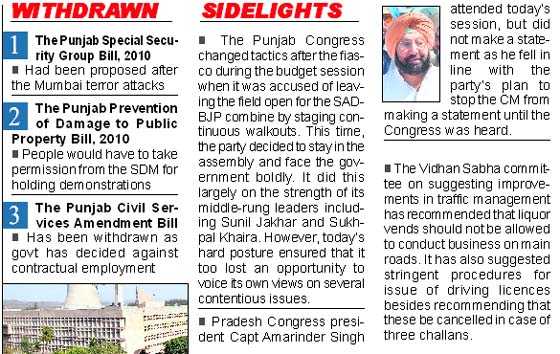NEW DELHI: A trial court has held that adivorce decree granted by a foreign court to anNRI is invalid in case the woman does not have the means to go to that country to plead her case and if she had not subjected herself to the jurisdiction of that court.
"The apex court has opined that where the foreign judgment is in defiance of the Indian Law, it could not be said to be conclusive... in the matter adjudicated and would be unenforceable," in this country," it said, adding the woman's objections raised by the woman fell within the purview of the exceptions of Section 13 Civil Procedure Code (when 'foreign judgment not conclusive'.
The court gave the ruling in a case where a UK-based NRI divorced his wife there though his wife had returned to India and not "submitted to the jurisdiction of a foreign court". The woman has sought divorce here on grounds of cruelty. The court said that the decree of divorce granted by the court could not be recognized.
"The fact that the petitioner has been residing in India since December 2009 and did not have the wherewithal to contest the proceedings on merit in the court in UK not only created an imbalance and an inequitable situation but clearly points out that she had not submitted to the jurisdiction of that court," Additional District judge Ina Malhotra said.
The woman (petitioner) had moved the trial court seeking divorce on the grounds of cruelty. Her husband, however, submitted that their marriage had already been dissolved by a court in UK and had attained finality. Hence, making a application infructuous. Also, since both the parties were a resident of UK, the decree was valid.
Her counsel Prashant Mendiratta argued that since the lady had never subjected herself to the jurisdiction of the UK Court adjudicating on the divorce, the decree passed by the UK Court would not bind the lady. Citing various judgments by Supreme court on the issue, Mendiratta said that in any case the proper law for dissolution of a marriage solemnized by Hindu rites and ceremonies between two Hindus would be the personal law of the parties, which is the Hindu Marriage Act, 1955-an act not applicable in UK.
After going through the contentions of both the parties, the court held that the objections raised by the woman fell within the purview of the exceptions of Section 13 Civil Procedure Code (when foreign judgment not conclusive), rendering the foreign decree a nullity. "I find that apex court has clearly opined that where the foreign judgment is in defiance of the Indian Law, it could not be said to be conclusive in the matter adjudicated and would be unenforceable in this country," it said.
The court also said even the fact that the petitioner (woman) was a resident of UK before and after marriage cannot vest the foreign court with the jurisdiction to adjudicate the matter as she had returned to India for good and not on a fleeting visit "prior to initiation of divorce proceedings" in UK.
"The apex court has opined that where the foreign judgment is in defiance of the Indian Law, it could not be said to be conclusive... in the matter adjudicated and would be unenforceable," in this country," it said, adding the woman's objections raised by the woman fell within the purview of the exceptions of Section 13 Civil Procedure Code (when 'foreign judgment not conclusive'.
The court gave the ruling in a case where a UK-based NRI divorced his wife there though his wife had returned to India and not "submitted to the jurisdiction of a foreign court". The woman has sought divorce here on grounds of cruelty. The court said that the decree of divorce granted by the court could not be recognized.
"The fact that the petitioner has been residing in India since December 2009 and did not have the wherewithal to contest the proceedings on merit in the court in UK not only created an imbalance and an inequitable situation but clearly points out that she had not submitted to the jurisdiction of that court," Additional District judge Ina Malhotra said.
The woman (petitioner) had moved the trial court seeking divorce on the grounds of cruelty. Her husband, however, submitted that their marriage had already been dissolved by a court in UK and had attained finality. Hence, making a application infructuous. Also, since both the parties were a resident of UK, the decree was valid.
Her counsel Prashant Mendiratta argued that since the lady had never subjected herself to the jurisdiction of the UK Court adjudicating on the divorce, the decree passed by the UK Court would not bind the lady. Citing various judgments by Supreme court on the issue, Mendiratta said that in any case the proper law for dissolution of a marriage solemnized by Hindu rites and ceremonies between two Hindus would be the personal law of the parties, which is the Hindu Marriage Act, 1955-an act not applicable in UK.
After going through the contentions of both the parties, the court held that the objections raised by the woman fell within the purview of the exceptions of Section 13 Civil Procedure Code (when foreign judgment not conclusive), rendering the foreign decree a nullity. "I find that apex court has clearly opined that where the foreign judgment is in defiance of the Indian Law, it could not be said to be conclusive in the matter adjudicated and would be unenforceable in this country," it said.
The court also said even the fact that the petitioner (woman) was a resident of UK before and after marriage cannot vest the foreign court with the jurisdiction to adjudicate the matter as she had returned to India for good and not on a fleeting visit "prior to initiation of divorce proceedings" in UK.
